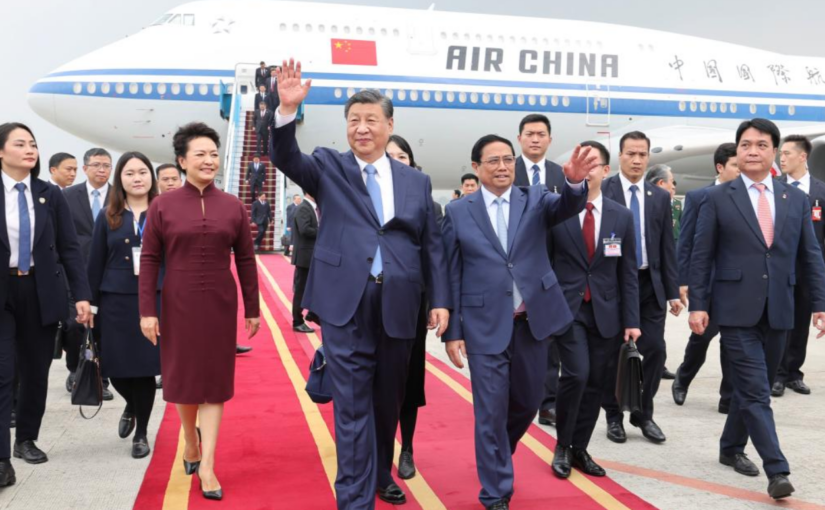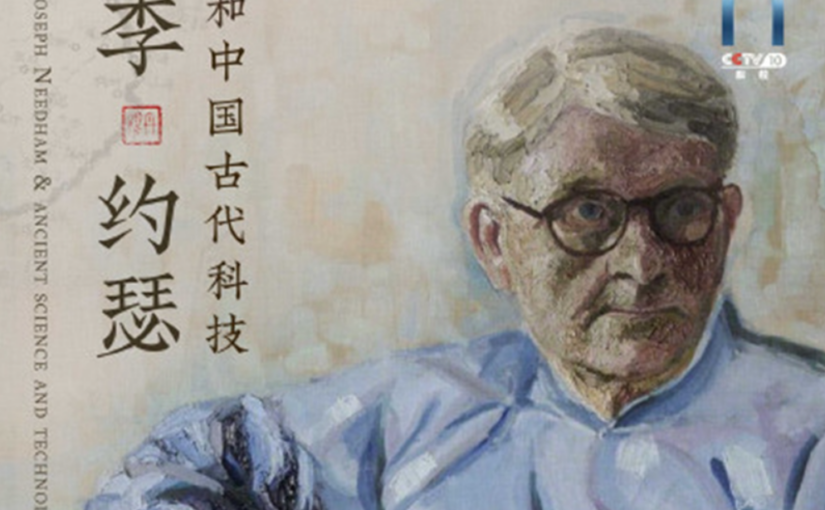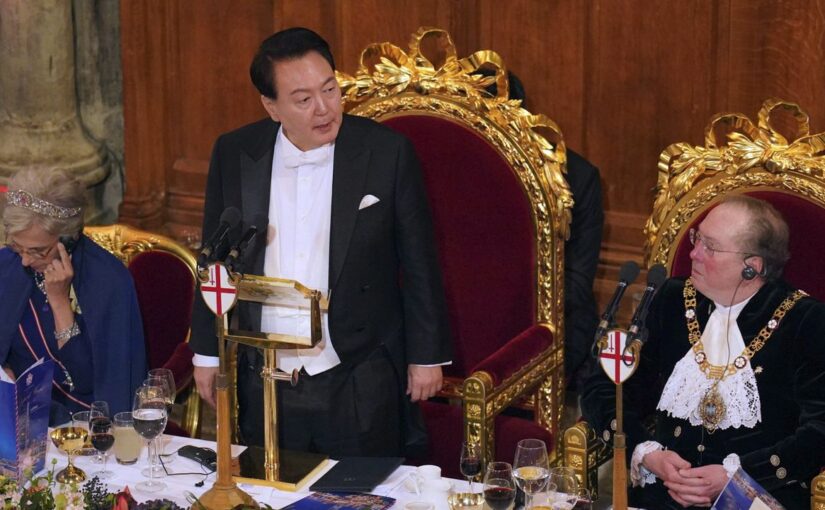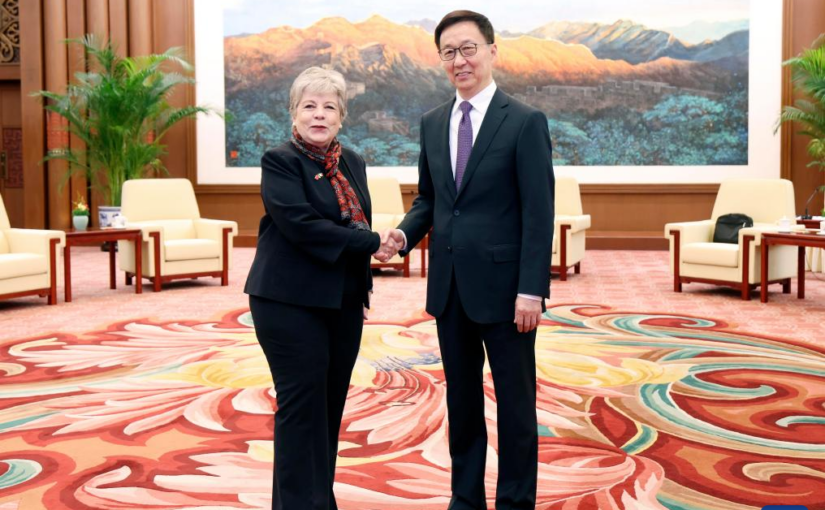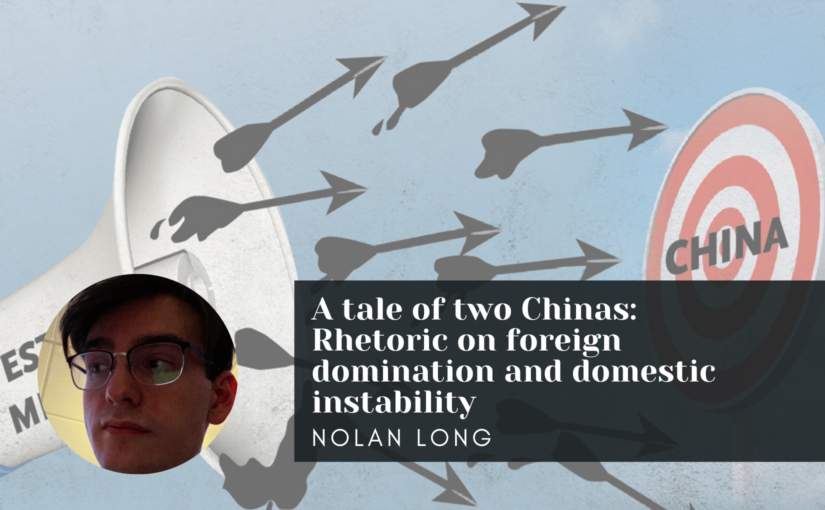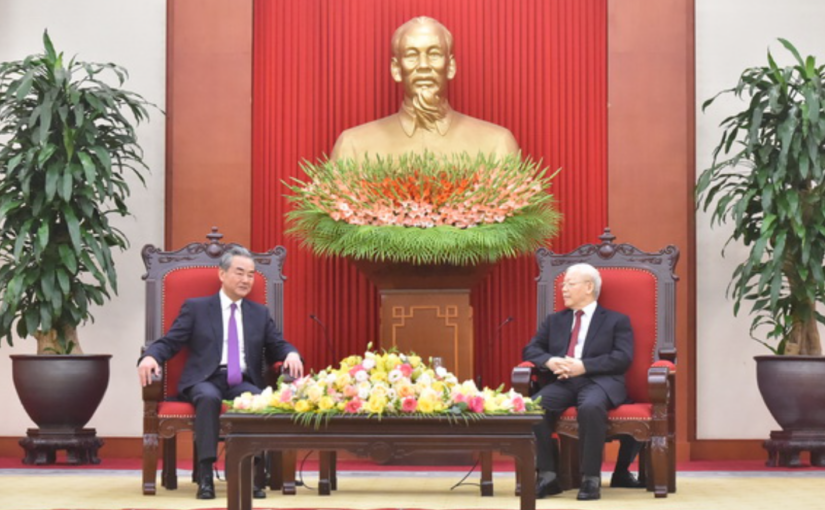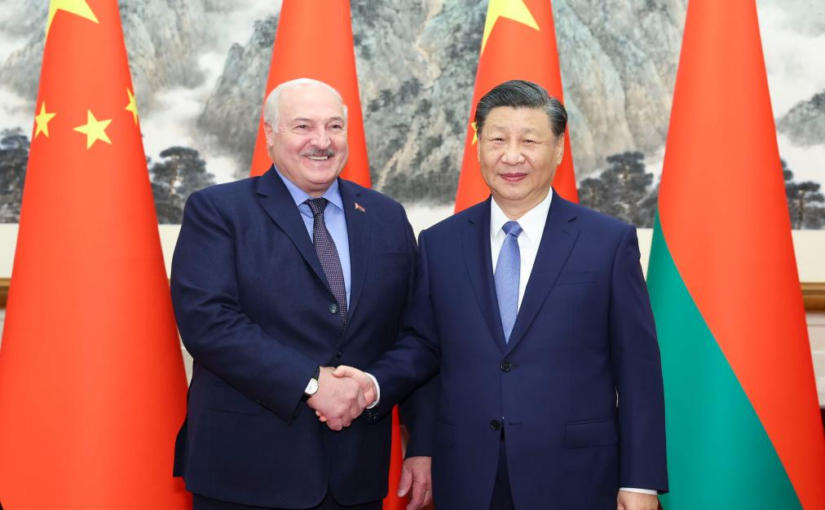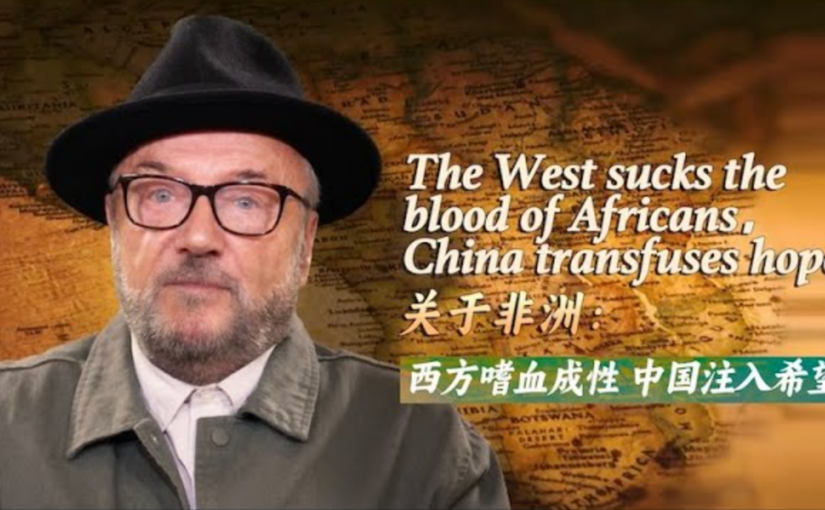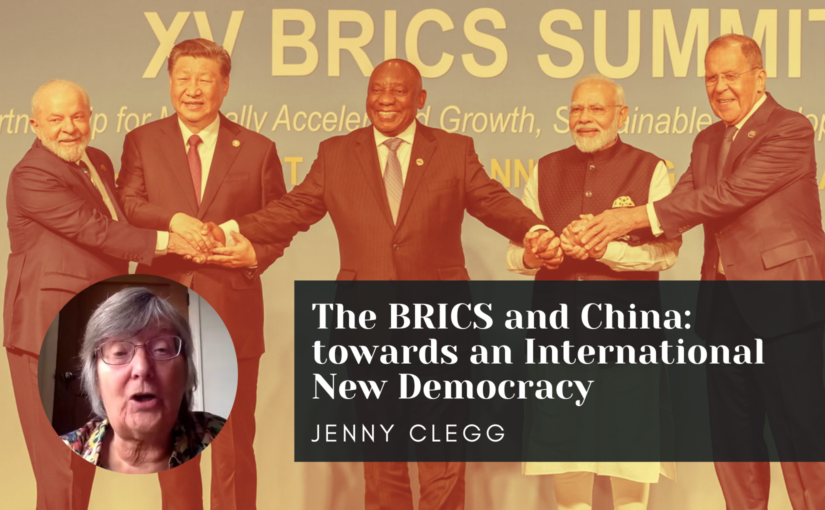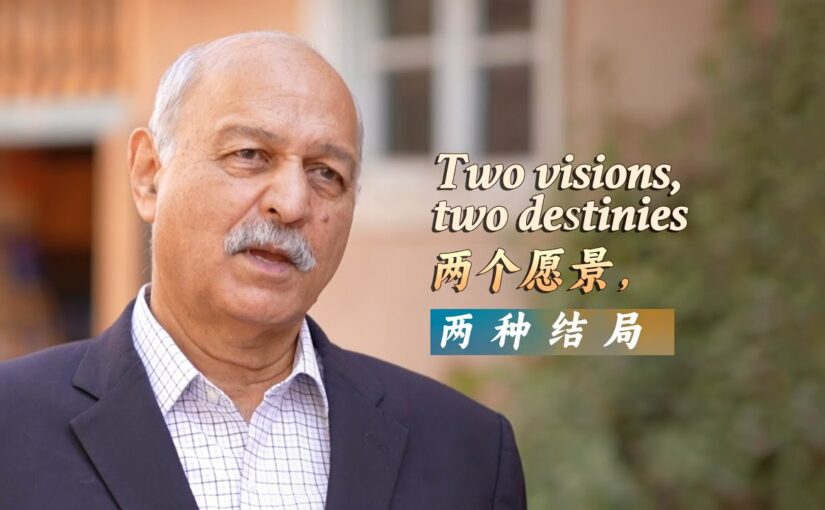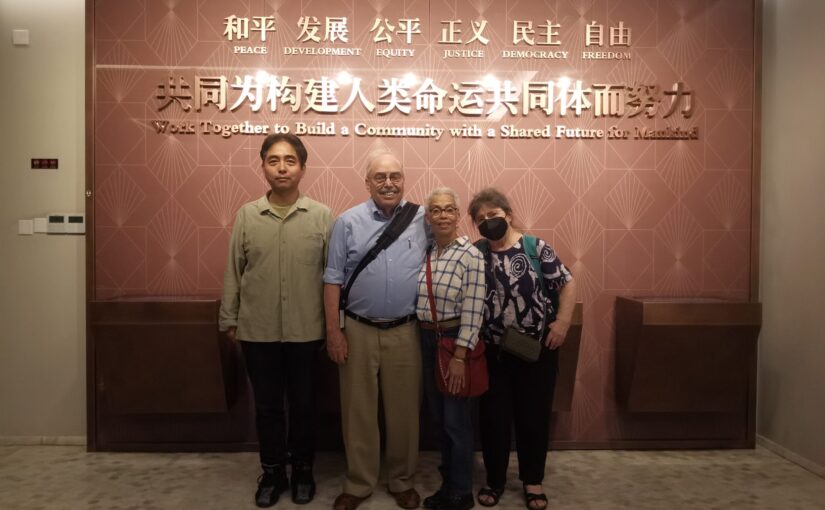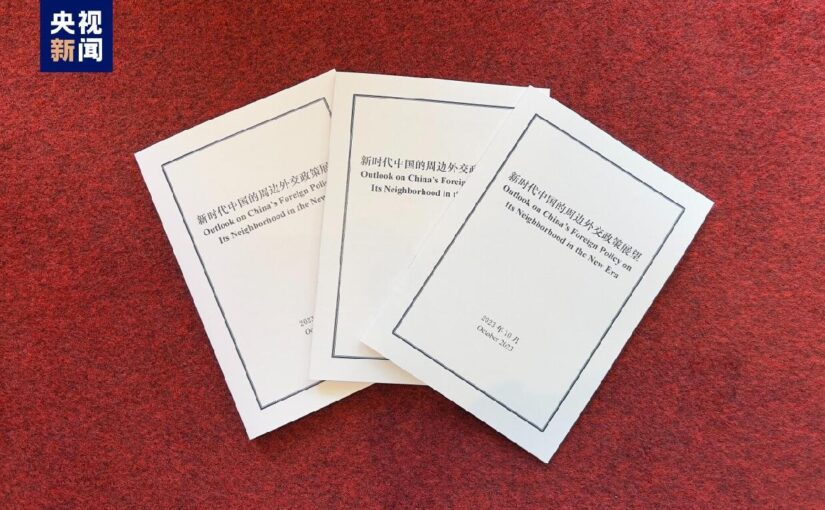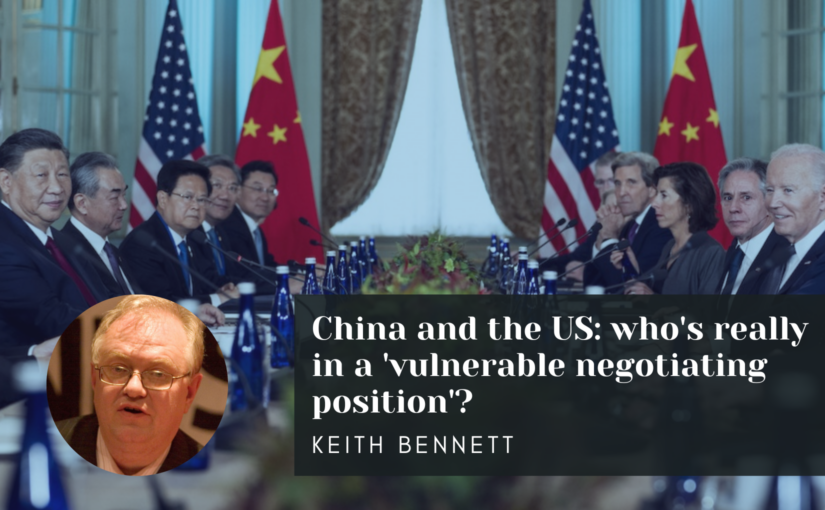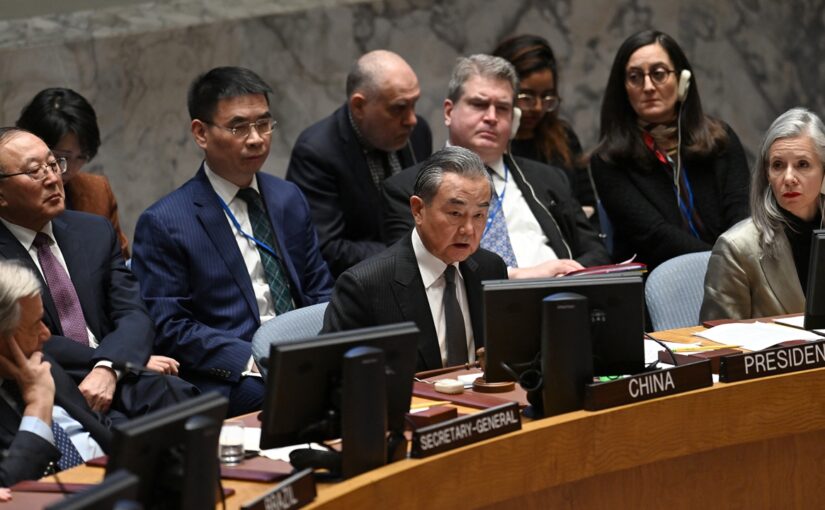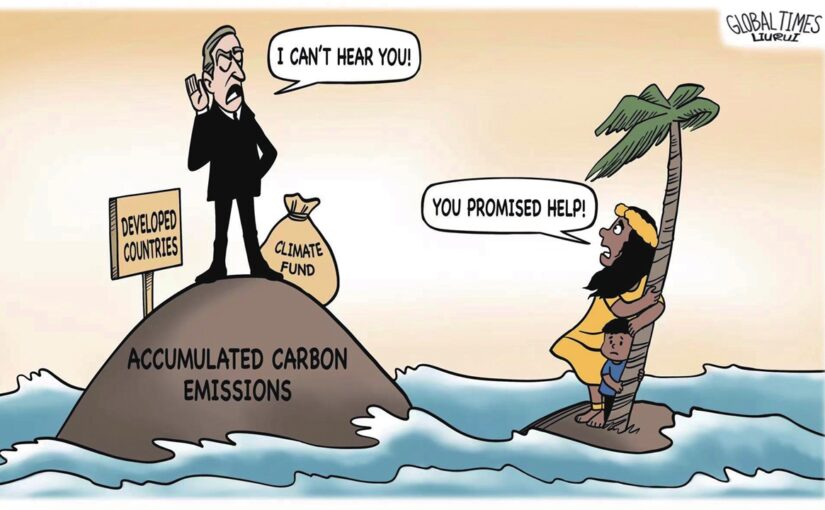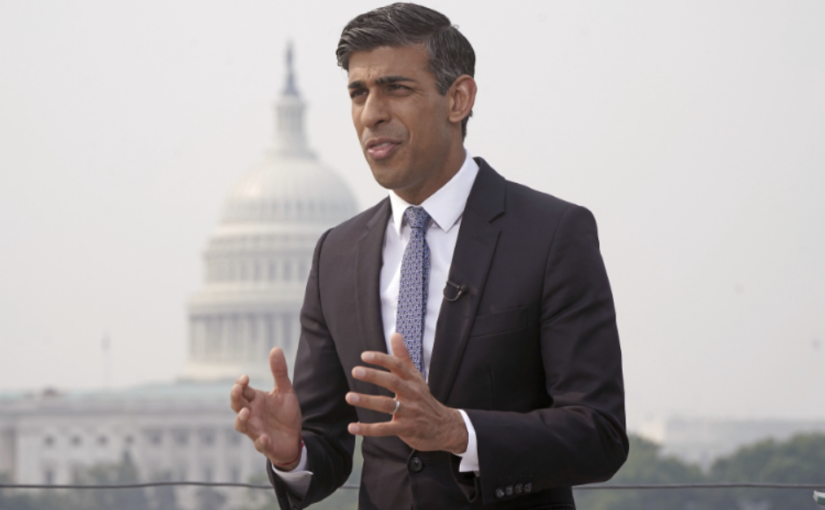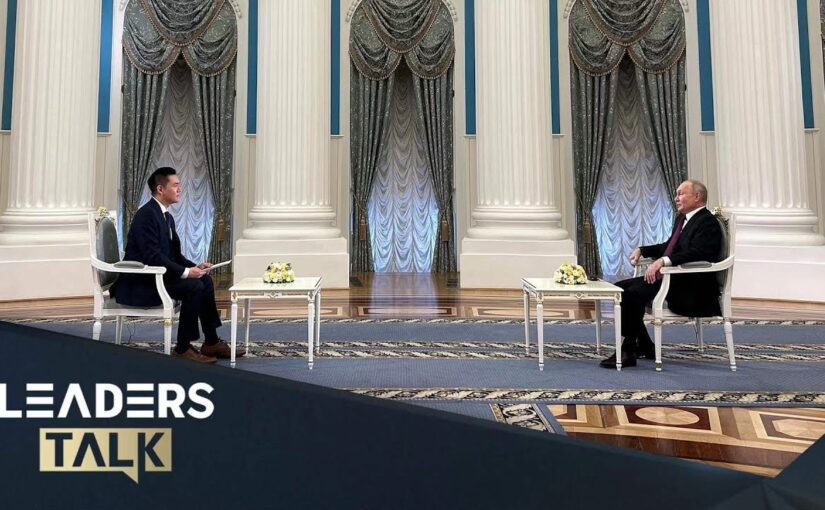Chinese President Xi Jinping’s December 12-13 state visit to Vietnam has been an historic one, not only in terms of promoting good neighbourly and friendly bilateral relations, but especially in stressing the two countries’ common adherence to socialism, strengthening the unity and solidarity of the socialist countries and hence the position of socialism in the world.
To coincide with his arrival in Vietnam, President Xi contributed an article to Nhan Dan, the daily newspaper of the Communist Party of Vietnam. In opening, the Chinese leader notes:
“It will be my third visit to this beautiful country since I became General Secretary of the Central Committee of the Communist Party of China (CPC) and President of the People’s Republic of China. I feel that I am already immersed in the warmth that people would only have when visiting relatives and neighbours.”
He continues: “China and Vietnam are connected by mountains and rivers. We enjoy cultural proximity, cherish the same ideals, and have a shared future ahead of us. Inspired by common visions, convictions and empathy, Comrade Mao Zedong, Comrade Ho Chi Minh and other older-generation leaders of our two parties and countries jointly cultivated the China-Vietnam traditional friendship featuring ‘camaraderie plus brotherhood.’ We stood together wholeheartedly and supported each other in pursuing national independence and liberation. In advancing socialism, we shared our experience and expanded our cooperation, writing together a historic chapter of China-Vietnam friendship.”
Noting that 2023 marks the 15th anniversary of the China-Vietnam comprehensive strategic cooperative partnership, Xi writes: “No matter how the global environment has changed, our two parties and countries have worked together to uphold peace and tranquility, pursue development and cooperation, and promote prosperity and progress. We have found a promising path of jointly building a community with a shared future for humanity.” He adds that “leaders of our two parties and countries have visited each other frequently like relatives.”
Drawing attention to their common interests and mutually beneficial cooperation, Xi points out that: “China has long been Vietnam’s largest trading partner, and Vietnam is China’s biggest trading partner in ASEAN and the fourth largest globally.” Giving a specific example, he writes: “Vietnam’s first urban light rail project, the Cat Linh-Ha Dong metro line, which was built by a Chinese company, has served nearly 20 million passenger trips so far, making travels in Hanoi more convenient.”
Having observed that “building a community with a shared future for humanity should start from Asia,”, Xi continues: “Vietnam’s friendship with China featuring ‘camaraderie plus brotherhood’ is profound indeed. The CPC and the Chinese government always take it as a priority in our neighbourhood diplomacy to develop relations with Vietnam. We sincerely hope that our two nations will always hold dear to the hearts our traditional friendship, always keep in mind our shared visions and missions, advance together along the socialist path, and steadily promote the building of a community with a shared future that carries strategic significance… It is important that we keep strategic communication at high levels to ensure that the ship of China-Vietnam relations can break waves and keep making steady progress. We should firmly support each other in pursuing the socialist path suited to our respective national realities… We need to deepen exchanges on the theory and practices of socialist development, fend off external risks and challenges together, and ensure steady and sustained progress in our socialist endeavours.”
Stressing the need to properly manage differences, Xi writes that: “Both sides need to act on the common understandings reached by the leaders of our two parties and countries, properly manage differences on maritime issues, and jointly look for mutually acceptable solutions. Both should bear in mind the long-term well-being of our peoples, and stay committed to striving for mutual benefit and win-win cooperation.”
The following is the full text of President Xi’s article. It was originally published on the website of the Chinese Foreign Ministry.
I will soon pay a state visit to the Socialist Republic of Viet Nam at the invitation of General Secretary of the Central Committee of the Communist Party of Viet Nam (CPV) Nguyen Phu Trong and President Vo Van Thuong. It will be my third visit to this beautiful country since I became General Secretary of the Central Committee of the Communist Party of China (CPC) and President of the People’s Republic of China. I feel that I am already immersed in the warmth that people would only have when visiting relatives and neighbors.
China and Viet Nam are connected by mountains and rivers. We enjoy cultural proximity, cherish the same ideals, and have a shared future ahead of us. Inspired by common visions, convictions and empathy, Comrade Mao Zedong, Comrade Ho Chi Minh and other older-generation leaders of our two parties and countries jointly cultivated the China-Viet Nam traditional friendship featuring “camaraderie plus brotherhood.” We stood together wholeheartedly and supported each other in pursuing national independence and liberation. In advancing socialism, we shared our experience and expanded our cooperation, writing together a historic chapter of China-Viet Nam friendship.
This year marks the 15th anniversary of the China-Viet Nam comprehensive strategic cooperative partnership. No matter how the global environment has changed, our two parties and countries have worked together to uphold peace and tranquility, pursue development and cooperation, and promote prosperity and progress. We have found a promising path of jointly building a community with a shared future for mankind.
We have conducted exchanges with mutual trust. Leaders of our two parties and countries have visited each other frequently like relatives. I had close interactions with General Secretary Nguyen Phu Trong through the year. We jointly drew up a blueprint for China-Viet Nam relations in the new era from a strategic and long-term perspective, adding new dimensions to the relationship and raising it up to a new stage. I met with President Vo Van Thuong, Prime Minister Pham Minh Chinh, and permanent member of the Secretariat of the Central Committee of the CPV Truong Thi Mai, who came to China for bilateral visits or international conferences. The two sides held the session of the steering committee for bilateral cooperation, the party-to-party theoretical symposium, the conference on crime control between the two public security ministries, and other meetings under bilateral mechanisms. Interagency and subnational cooperation was getting ever closer.
Continue reading Xi Jinping: Building a China-Vietnam Community with a Shared Future